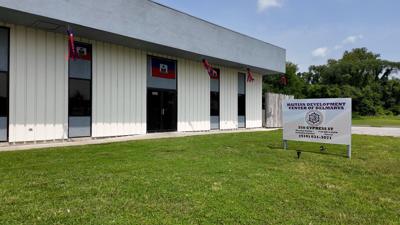WICOMICO COUNTY, Md. -- The Department of Homeland Security is sending termination notices to immigrants paroled into the United States under the CHNV program. CHNV allowed certain nationals from Cuba, Haiti, Nicaragua and Venezuela to apply for entry to the U.S. for a temporary stay of up to two years.
The Biden Administration opened the program in 2023.
The notices, sent to program participants via email, inform them that their parole and parole-based employment authorization have been revoked. According to the DHS press release, parole recipients who have not yet obtained lawful status to remain in the U.S. must leave the country immediately.
"The Biden Administration lied to America. They allowed more than half a million poorly vetted aliens from Cuba, Haiti, Nicaragua, and Venezuela and their immediate family members to enter the United States through these disastrous parole programs; granted them opportunities to compete for American jobs and undercut American workers; forced career civil servants to promote the programs even when fraud was identified; and then blamed Republicans in Congress for the chaos that ensued and the crime that followed," said Tricia McLaughlin, DHS Assistant Secretary for Public Affairs.
The directive is sending shockwaves through Wicomico County, which is estimated to have the largest Haitian population in the state of Maryland.
"I don't know how many came through the Biden program, but at this point, there might be, probably at this moment over 3,000 [to] 4,000 Haitians in Wicomico County," said Reverend Roosevelt Toussaint, Executive Director of the Haitian Development Center of Delmarva.
Toussaint said the CHNV program offered a lifeline to those seeking to escape a country plagued by violence and political unrest.
"The country[Haiti] is out of control, the government cannot provide protection or security for them, a lot of them are running for their lives," said Toussaint.
He does not expect many people to leave the U.S. willingly.
"They're going to go back to hell," said Toussaint.
McLaughlin said ending the CHNV parole programs will "be a necessary return to common-sense policies, a return to public safety, and a return to America First."
Nerla Despinasse immigrated to the United States and earned U.S. citizenship. She now owns the Papayo Market, a Haitian grocery store off Nanticoke Road. She believes the government should focus on individuals rather than take a route leading to mass deportations.
"If a criminal is there, they need to put the criminal out, but the civilian people, the peaceful, they need to protect them." said Despinasse. "In Salisbury, they work with the community, they pay tax, they participate in the economy."
She would like the government to be patient with immigrants attempting to earn citizenship status, a process Despinasse said can be painfully slow.
"Some of them, they apply for asylum, for TPS, for like adjustment of status, we need something," said Despinasse. "Going back to Haiti, that's not fair for us."
Despinasse and Toussaint are also worried that if people in Wicomico County under the CHNV program choose to stay put, it could lead to a local influx of ICE agents. DHS did not hint at that possibility in its press release, and as of last week, Salisbury Mayor Randy Taylor stated that city officials had not been officially notified of anything related to ICE.


